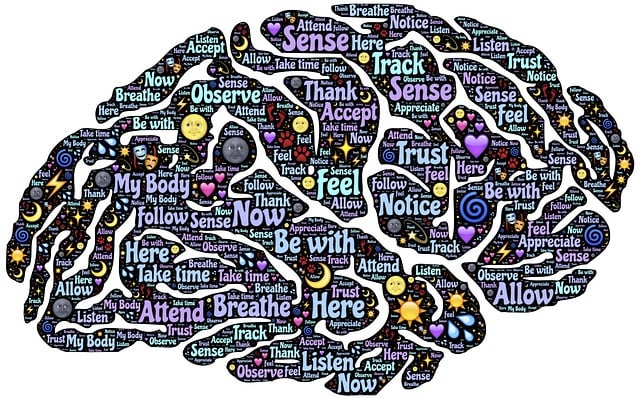Longmont Eating Disorders Therapy prioritizes cultural competency, tailoring treatment plans to meet diverse client needs. They achieve this through training programs that educate healthcare providers on understanding ethnic identities, valuing beliefs, recognizing social determinants of health, and effectively communicating with various backgrounds. Regular refresher courses keep therapists updated on best practices, ensuring continuous improvement in handling sensitive topics like eating disorders among Longmont communities.
In Longmont, providing culturally competent care is paramount in the treatment of eating disorders. This approach recognizes the impact of cultural background on healthcare experiences and outcomes, particularly for diverse communities. This article explores why cultural competency training is essential for healthcare providers in Longmont specializing in eating disorders therapy. We discuss designing effective training programs and offer strategies for implementation and continuous improvement to ensure culturally sensitive care remains a priority.
- Understanding Cultural Competency in Healthcare: Why It Matters for Eating Disorders Treatment in Longmont
- Designing Effective Training Programs: Essential Components for Longmont Healthcare Providers
- Implementation and Continuous Improvement: Strategies for Sustaining Cultural Competency in Eating Disorders Therapy
Understanding Cultural Competency in Healthcare: Why It Matters for Eating Disorders Treatment in Longmont

Cultural competency is a vital aspect of healthcare, especially when addressing sensitive topics like eating disorders in Longmont communities. It involves understanding and respecting diverse cultural beliefs, values, and practices related to mental wellness. In the context of Longmont Eating Disorders Therapy, this means creating an inclusive environment where individuals from various ethnic, racial, and cultural backgrounds feel accepted and supported.
With a growing diversity in our cities, healthcare providers must be equipped to offer sensitive and effective care. This is where Mental Wellness Coaching Programs Development plays a crucial role. By integrating Trauma Support Services and incorporating Stress Reduction Methods, therapists can help clients navigate their cultural identities while addressing eating disorders. Such an approach ensures that treatment plans are tailored to each individual’s unique needs, fostering a positive impact on their mental wellness journey.
Designing Effective Training Programs: Essential Components for Longmont Healthcare Providers

Effective training programs for Longmont healthcare providers, focusing on cultural competency, should be meticulously designed to cater to diverse learning styles and needs. Engaging workshops that incorporate interactive activities, case studies, and role-playing scenarios can significantly enhance knowledge retention. These sessions should delve into various aspects of cultural competence, including understanding ethnic and racial identities, appreciating different values and beliefs, and recognizing the impact of social determinants of health. By fostering an inclusive environment where providers feel comfortable discussing sensitive topics, these programs enable better patient care, especially for vulnerable populations like those seeking Longmont eating disorders therapy.
Key components include incorporating communication strategies that bridge cultural gaps, promoting empathy, and enhancing active listening skills. Additionally, burnout prevention strategies for healthcare providers should be integral to the curriculum. This includes teaching stress management techniques, fostering resilience, and encouraging self-care practices to mitigate professional exhaustion, ensuring healthcare providers can maintain high standards of care over time.
Implementation and Continuous Improvement: Strategies for Sustaining Cultural Competency in Eating Disorders Therapy

Implementing cultural competency training is a crucial step in providing effective eating disorders therapy, such as those offered by Longmont Eating Disorders Therapy. However, ensuring sustainability and continuous improvement is essential for long-term success. To maintain cultural sensitivity, regular refresher courses and workshops should be organized to keep therapists updated on the latest research and best practices. These sessions can cover various topics, including new treatment approaches, cultural nuances, and case studies that highlight complex scenarios.
Additionally, fostering an environment of open communication and feedback encourages practitioners to reflect on their practice and identify areas for improvement. Mentorship programs can play a vital role here by pairing experienced therapists with newcomers, facilitating knowledge transfer and enhancing emotional regulation among professionals. This continuous learning approach ensures that the team remains confident in handling diverse patient backgrounds, ultimately improving outcomes for those seeking treatment for eating disorders.
Cultural competency training is a game-changer in Longmont eating disorders therapy, ensuring healthcare providers offer sensitive and effective care. By understanding diverse cultural contexts and implementing tailored training programs, we can revolutionize treatment outcomes for all residents. Continuous improvement through ongoing education and feedback loops will foster a more inclusive and accessible environment, making Longmont a leader in culturally competent eating disorders therapy.














